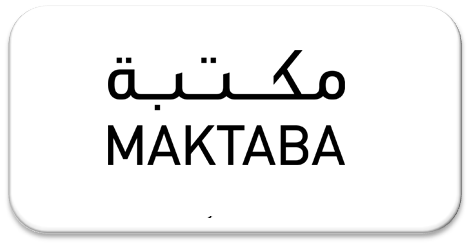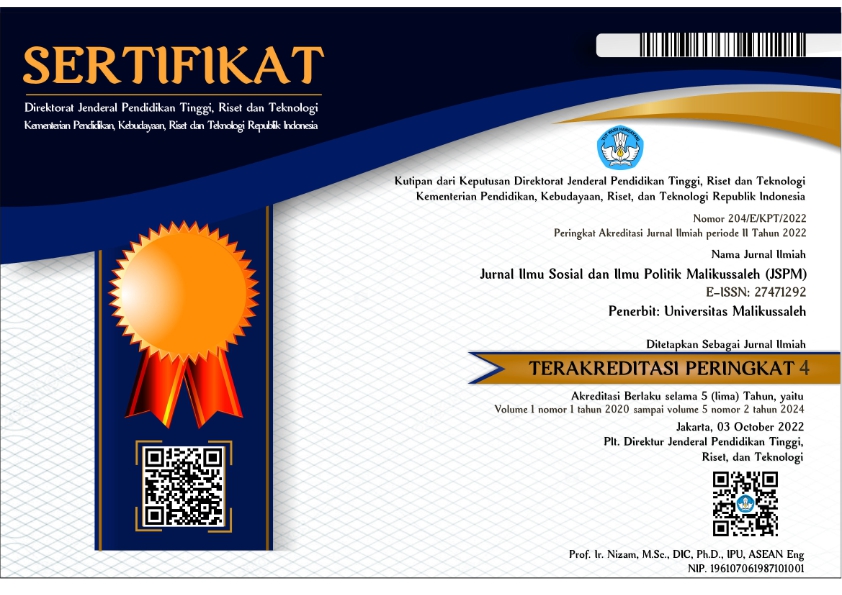The Impact of Covid-19 Towards Human Security
Abstract
The emergence of coronavirus at the end of 2019 caused the world to fall into a global pandemic. It cannot be denied that the phenomenon of the Covid-19 pandemic caused a downturn in the global economy. The threat of the Covid-19 pandemic has endangered social aspects and has also destabilized the political and economic life of all countries. Covid-19 has an impact on human security around the world. The concept of human security essentially emphasizes human freedom from fear. Through the concept of human security, this article seeks to explain how people are classified as vulnerable objects. Their lives could be threatened by Covid-19. The author uses a qualitative methodology with case study techniques to address this issue. The analysis in this article shows that poor, undernourished people who do not have access to sanitation and health services live in densely populated areas and people with comorbidities are particularly vulnerable to exposure to Covid-19. The conclusion of this research is that the government needs to give priority to these vulnerable communities. They are the entities that need to be protected from the threat posed by Covid-19.
Abstrak
Munculnya virus corona di penghujung tahun 2019 menyebabkan dunia terjerumus ke dalam pandemi global. Tak bisa dipungkiri, fenomena pandemi Covid-19 menyebabkan perlambatan ekonomi global. Ancaman pandemi Covid-19 telah membahayakan aspek sosial dan juga mengguncang kehidupan politik dan ekonomi semua negara. Covid-19 berdampak pada keamanan manusia di seluruh dunia. Konsep keamanan manusia pada dasarnya menekankan kebebasan manusia dari rasa takut. Melalui konsep human security, artikel ini berusaha menjelaskan bagaimana manusia diklasifikasikan sebagai objek yang rentan. Hidup mereka bisa terancam oleh Covid-19. Penulis menggunakan metodologi kualitatif dengan teknik studi kasus untuk mengatasi masalah ini. Analisis dalam artikel ini menunjukkan bahwa orang miskin dan kurang gizi yang tidak memiliki akses ke sanitasi dan layanan kesehatan tinggal di daerah padat penduduk dan orang dengan penyakit penyerta sangat rentan terhadap paparan Covid-19. Kesimpulan dari penelitian ini adalah bahwa pemerintah perlu memberikan prioritas kepada masyarakat rentan tersebut. Mereka adalah entitas yang perlu dilindungi oleh pemerintah dari ancaman Covid-19.
Keywords
Full Text:
PDFReferences
Abbot, L. (2021). Global Covid-19 Responses Through a Critical Security Studies Perspective. Retrieved from https://www.e-ir.info/2021/01/20/global-covid-19-responses-through-a-critical-security-studies-perspective/
Adams, E. A., Stoler, J., & Adams, Y. (2020). Water Insecurity and Urban Pverty in The Global South: Implications for Health and Human Biology. American Journal of Human Biology, 1-12.
Ahsan, M. K. (2016). Revisiting the Concept of Human Security. Philosophy and Progress Vol. LIX (LX), 10-42.
Angoua, E. L., Dongo, K., Templeton, M. R., Zinsstag, J., & Bonfoh, B. (2018). Barriers to Access Improved Water and Sanitation in Poor Peri-Urban Settlements of Abidjan, Cote D'Ivoire. PLOS One, 1-13.
Auliya, A. A., & Kusumawardhana, I. (2019). UNICEF and The Wash: Analisis Terhadap Peran UNICEF dalam Mengatasi Masalah Ketersediaan Air Bersih di India. Frequency of International Relations Vol.1 (2), 341-378.
Capano, G., Howlett, M., Jarvis, D. S., Ramesh, M., & Nihit, G. (2020). Moiblizing Policy (In)Capacity to Fight Covid-19: Understanding Variations in State Responses. Policy and Society Vol.39 (3), 285-308.
Chattu, V. K., Knight, A., Reddy, K. S., & Aginam, O. (2019). Global Health Diplomacy Fingerprints on Human Security. International Journal of Preventive Medicine Vol.10 (204), 1-4.
Creswell, J. (2014). Research Design: Qualitative, Quantitative, and Mixed Methods Approaches (4th Eds). London: SAGE.
Djalante, R., et.al. (2020). Review and Analysis of Current Responses to Covid-19 in Indonesia: Period of January to March 2020. Progress in Disaster Science Vol.6, 1-9.
Dwinanto, J., & Sumarni. (2020). Human Security, Social Stigma, and Global Health: The Covid-19 Pandemic in Indonesia. Journal of The Medical Sciences Vol.52 (3), 74-81.
Filardo, T. D., et.al. (2020). Comorbidity and Clinical Factors Associated with Covid-19 Critical Illness and Mortality at a Large Public Hospital in New York City in The Early Phase of The Pandemic (March-April 2020). PLOS ONE, 1-16.
Friesen, J., & Pelz, P. F. (2020). Covid-19 and Slums: A Pandemic Highlights Gaps in Knowledge About Urban Poverty. JMIR Public Health and Surveillance, 1-4.
Gasper, D., & Gomez, O. A. (2015). Human Security Thinking in Practice: 'Personal Security', 'Citizen Security', and 'Comprehensive Mappings'. Contemporary Politics Vol.21 (1), 100-116.
Gazizulin, A. (2016). The Significance of The 'Human Security' Paradigm in International Politics. Retrieved from https://www.e-ir.info/2016/02/29/the-significance-of-the-human-security-paradigm-in-international-politics/
Ghosh, S., Seth, P., & Tiwary, H. (2020). How Does Covid-19 Aggravate the Multidimensional Vulnerability of Slums in India? A Commentary. Social Sciences & Humanities Open Vol.2, 1-5.
Gomez, O. A., & Gasper, D. (2013). Human Security: A Thematic Guidance Note for Regional and National Human Development Report Teams. Retrieved from http://hdr.undp.org/sites/default/files/human_security_guidance_note_r-nhdrs.pdf
Guan, W. J., et.al. (2020). Comorbidity and Its Impact on 1590 Patients With Covid-19 in China: A Nationwide Analysis. European Respiratory Journal, 5-56.
Hakim, M. S., et.al. (2020). Current Understanding of The Origin, Molecular Biology and Continuing Evolution of Severe Acute Respiratory Syndrome Coronavirus 2 (SARS-CoV-2). Journal of The Medical Sciences Vol. 2 (3), 17-29.
Hammarberg, K. (2016). Qualitative Research Methods: When to Use Them and How to Judge Them. Human Reproduction Vol.31 (3), 498-501.
Handu, D., Moloney, L., Rozga, M., & Cheng, F. W. (2020). Malnutrition Care During the Covid-19 Pandemic: Considerations for Registered Dietitian Nutritionist. Journal of The Academy of Nutrition and Dietetics, 1-9.
Headey, D., et.al. (2020). Impacts of Covid-19 on Childhood Malnutrition and Nutrition-related Mortality. The Lancet Vol.396 (10250).
Herington, J. (2010). Securitization of Infectious Diseases in Vietnam: The Cases of HIV and Avian Influenza. Health Policy and Planning Vol.25, 467-475.
Lautensach, A. K. (2015). Sustainable Health for All? The Tension Between Human Security and The Right to Health Care. Journal of Human Security Vol.11 (1), 5-18.
Liu, H., Chen, S., Liu, M., Nie, H., & Lu, H. (2020). Comorbid Chronic Diseases are Strongly Correlated with Disease Severity among COVID-19 Patients: A Systematic Review and Meta-Analysis. Aging and Disease Vol.11 (3), 668-678.
Liu, Y. C., Kuo, R. L., & Shih, S. R. (2020). Covid-19: The First Documented Coronavirus Pandemic in History. Biomedical Journal, 1-5.
Lotfinejad, N., Peters, A., & Pittet, D. (2020). Hand Hygiene and The Novel Coronavirus Pandemic: The Role of Healthcare Workers. Journal of Hospital Infection Vol.105, 776-777.
Milani, C. R. (2020). Covid-19 Between Global Human Security and Ramping Authoritarian Nationalisms. Geopolitica Vol.11, 141-151.
Nunes, J. (2012). Health, Politics, and Security. Open Edition Journal Vol.15, 142-164.
Nurhasanah, S., Napang, M., & Rohman, S. (2020). Covid-19 As A Non-Traditional Threat to Human Security. Journal of Strategic and Global Studies Vol.3 (1), 54-68.
O'Manique, C., & Fourie, P. (2010). Security and Health in Twenty-first Century. In V. Mauer, & M. Dunn-Cavelty, The Routledge Handbook of Security Studies (pp. 243-254). New York: Routledge.
Periago, M. R. (2012). Human Security and Public Health. Rev Panam Salud Public Vol.31 (5), 355-358.
Purnama, S. G., & Susanna, D. (2020). Hygiene and Sanitation Challenge for Covid-19 Prevention in Indonesia. Kesmas: Jurnal Kesehatan Masyarakat Nasional Vol.1, 6-13.
Quinn, J. M., et.al. (2014). Fragile States, Infectious Disease and Health Security: The Case for Timor-Leste. Journal of Human Security Vol.10 (1), 14-31.
Rader, B., et.al. (2020). Crowding and the Shape of Covid-19 Epidemics. Nature Medicine, 1-17.
Rokvic, V., & Zoran, J. (2015). Health Issues as Security Issues. Vojno Delo Vol.6, 53-69.
Roselle, L., & Spray, S. (2012). Research and Writing in International Relations. Boston: Pearson Longman.
Sahasranaman, A., & Jensen, H. J. (2020). Spread of Covid-19 in Urban Neighbourhoods and Slums of The Developing World. J.R. Soc. Interface Vol.18, 1-9.
Shahid, H. J. (2018). Poverty and Health: The Challenges for GPs. InnovAiT Vol.11 (2), 109-114.
Shereen, M. A., Suliman, K., Kazmi, A., Bashir, N., & Siddique, R. (2020). Covid-19 Infection: Origin, Transmission, and Characteristic of Human Coronaviruses. Journal of Advanced Research, 91-98.
Singh, A. K., & Misra, A. (2020). Impact of Covid-19 and Comorbidities on Health and Economics: Focus on Developing Countries and India. Diabetes & Metabolic Syndrome: Clinical Research & Reviews Vol.14, 1625-1630.
Smith III, F. L. (2016). Malware and Disease: Lessons from Cyber Intelligence for Public Health Surveillance. Health Security Vol.14 (5), 1-10.
Waibel, H., & Hohfeld, L. (2016). Poverty and Nutrition: A Case Study of Rural Households in Thailand and Vietnam. Japan: Asian Development Bank Institute.
WHO. (2020). Coronavirus Disease 2019 (Covid-19) Situation Report - 94. Retrieved from https://www.who.int/indonesia/news/novel-coronavirus/situation-reports
WHO. (2020). Water, Sanitation, Hygiene, and Waste Management for Sars-Cov-2, the Virus that Causes COVID-19. Retrieved from https://www.who.int/publications/i/item/water-sanitation-hygiene-and-waste-management-for-the-covid-19-virus-interim-guidance
World Bank. (2020). Covid-19 and the Urban Poor Addressing Those in Slums. Retrieved from http://pubdocs.worldbank.org/en/304801589388481883/Addressing-COVID-19-and-the-Urban-Poor-SHORT-version-rev3-logos.pdf
Worldometers. (2021). Covid-19 Coronavirus Pandemic. Retrieved from https://www.worldometers.info/coronavirus/?
Wu, Y. C., Chen, C. S., & Chan, Y. J. (2020). The Outbreak of Covid-19: An Overview. Journal of The Chinese Medical Association Vol.83 (3), 217-220.
Yuk-ping, C. L., & Thomas, N. (2010). How is Health a Security Issue? Politics, Responses, and Issues. Health Policy and Planning Vol.25, 447-453.
DOI: https://doi.org/10.29103/jspm.v2i1.3730
 Article Metrics
Article Metrics
 Abstract Views : 1606 times
Abstract Views : 1606 times
Refbacks
- There are currently no refbacks.
Copyright (c) 2021 Iqbal Ramadhan

This work is licensed under a Creative Commons Attribution-ShareAlike 4.0 International License.
INDEXED BY:




.png)









Redaksi Jurnal Ilmu Sosial dan Ilmu Politik Malikussaleh (JSPM): Gedung Fakultas Ilmu Sosial dan Ilmu Politik Universitas Malikussaleh. Kampus Bukit Indah Jln. Sumatera No.8, Kec. Muara Satu Kota Lhokseumawe, Prov. Aceh, Indonesia. eMail: jspm@unimal.ac.id

This work is licensed under a Creative Commons Attribution-NonCommercial-ShareAlike 4.0 International License



.png)




